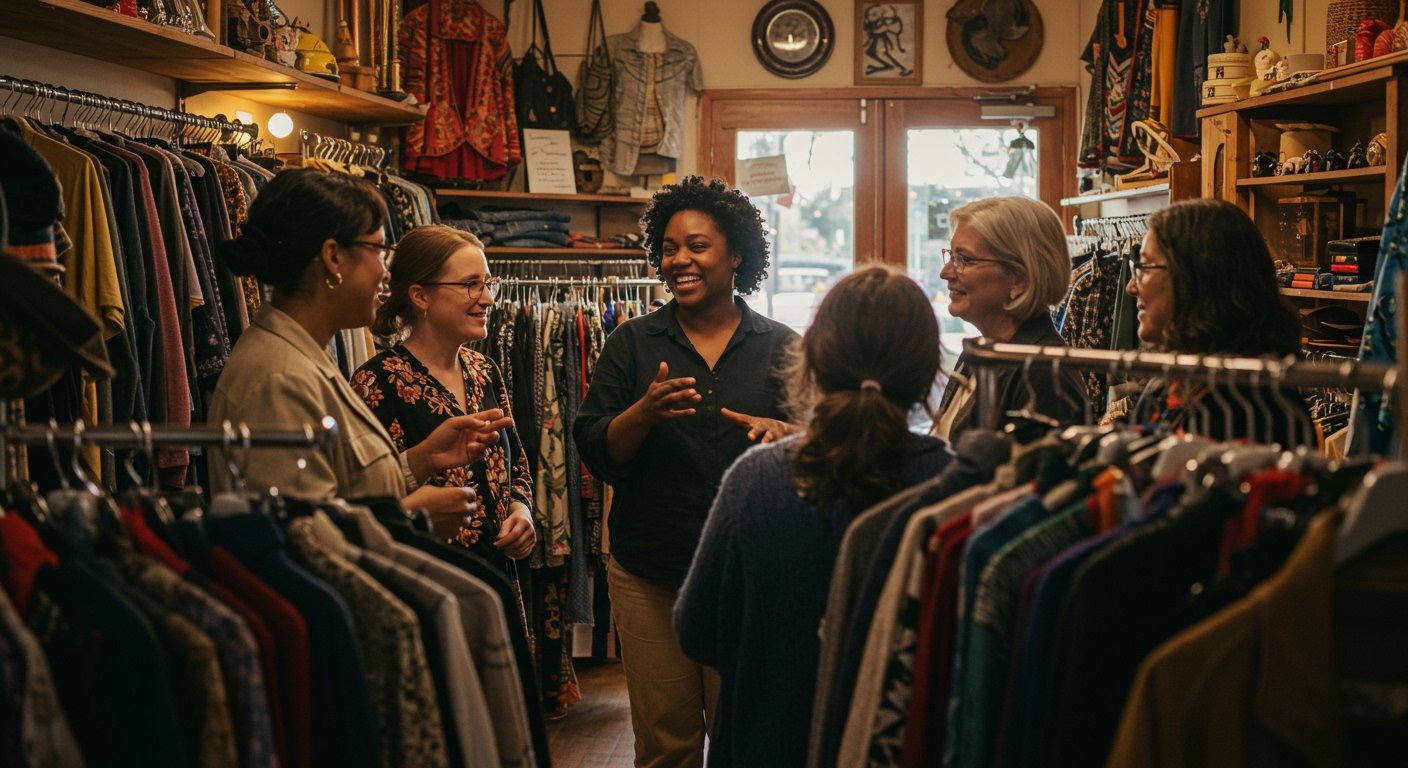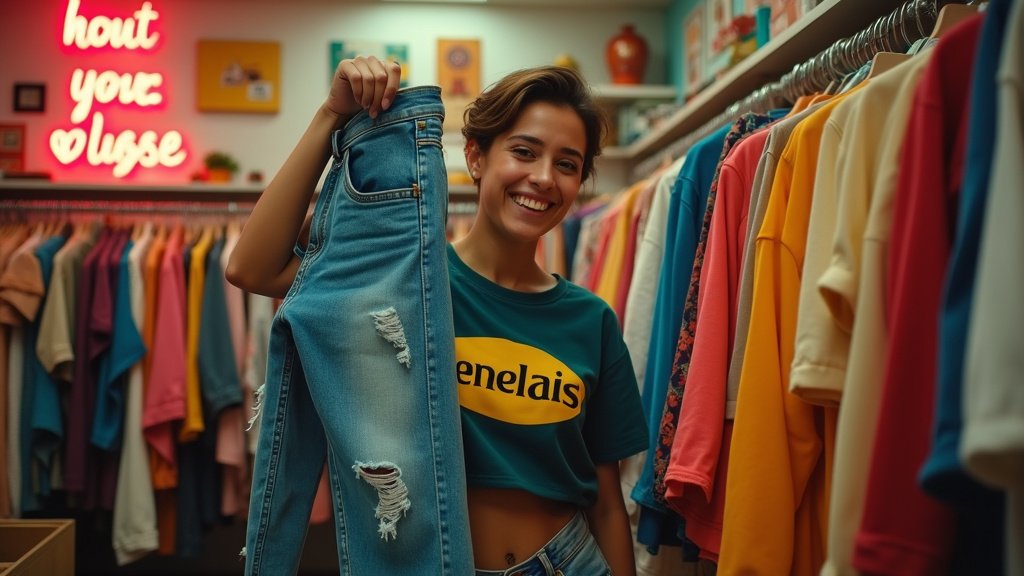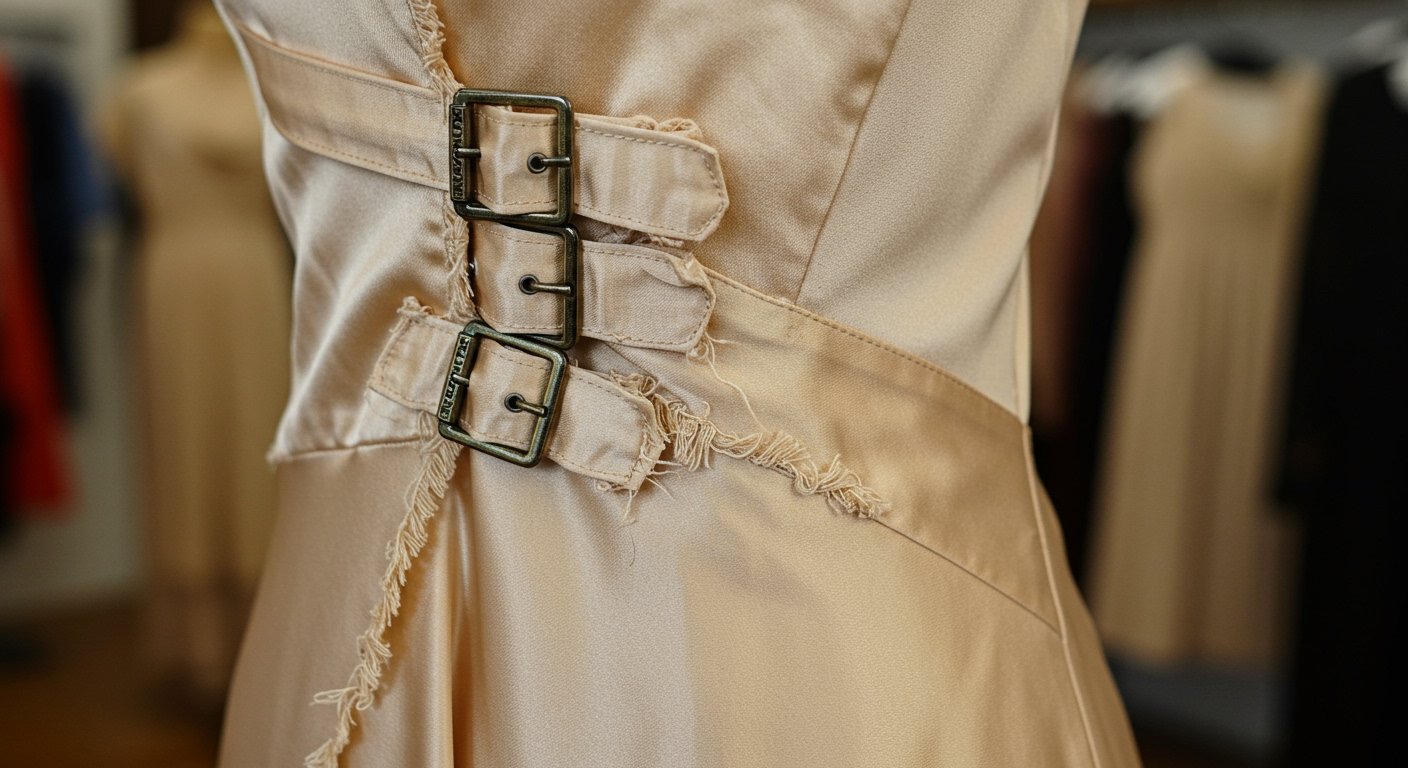A New Model for Retail
In the heart of Eugene, Oregon, a distinctive retail model is taking root, prioritizing human connection and community-building over the traditional focus on profit margins. Oregon Fiber Traders, a second-hand clothing store owned by Laural O’Rourke, stands as a testament to this alternative philosophy. O’Rourke’s vision for the business is not merely to sell garments but to foster a vibrant community space, recognizing a fundamental need for connection in contemporary society.
This approach diverges notably from the strategies employed by larger second-hand operations, which often scale for efficiency and volume. At Oregon Fiber Traders, the emphasis is deliberately placed on the quality of interaction and the creation of a welcoming environment. O’Rourke firmly believes that fostering community is paramount, articulating her core principle as prioritizing “community over capital.”
A Tapestry of Experience
Laural O’Rourke brings a rich and varied background to her entrepreneurial endeavor, a history that deeply informs her unique business philosophy. Her professional journey has included diverse experiences spanning beauty school, military service, and government work. This eclectic mix of roles has equipped her with a broad perspective on human interaction and societal dynamics.
Drawing from these experiences, O’Rourke places significant importance on the power of visual communication and the role of self-expression, particularly through fashion. She understands that clothing is more than just covering; it is a form of personal narrative and a means by which individuals present themselves to the world. This understanding underpins the curated selection and atmosphere she cultivates at Oregon Fiber Traders.
Relocation and Realization of Vision
Oregon Fiber Traders underwent a significant transition with its relocation in November. This move was not just a change of address but a strategic step towards realizing O’Rourke’s expansive vision for the store. The new location was specifically envisioned as a space designed to facilitate connection and encourage conversation among patrons.
O’Rourke explicitly highlights what she perceives as a “perceived hunger for connection post-COVID.” The isolation and disruption caused by the pandemic underscored the vital need for physical spaces where people can gather, interact authentically, and build relationships. The relocated store is intended to be such a haven, offering a tangible antidote to digital detachment and social fragmentation.
Philosophy of Connection and Change
Central to O’Rourke’s operational philosophy is the conviction that conversation is not merely idle chatter but a powerful catalyst for social change. By creating a space where people feel comfortable engaging in dialogue, sharing ideas, and connecting on a personal level, she aims to build a stronger, more interconnected local fabric.
This belief positions Oregon Fiber Traders as more than just a retail outlet; it aspires to be a civic space, a place where the simple act of browsing clothes can lead to meaningful exchanges and unexpected connections. The emphasis on conversation as key reflects a grassroots approach to community development, building bonds from the ground up.
Inclusivity as a Core Principle
As a Black woman business owner operating in Eugene, Oregon, inclusivity is not an afterthought for O’Rourke but a fundamental pillar of her vision for Oregon Fiber Traders. She is acutely aware of the importance of creating spaces where individuals from all backgrounds feel welcomed, represented, and valued.
Her identity and experiences shape her commitment to ensuring the store serves as an inclusive environment for everyone in the community. This dedication to inclusivity reinforces her goal for Oregon Fiber Traders to function as a “community beacon” – a guiding light and a safe harbor for diverse residents, fostering a sense of belonging for all who walk through its doors.
Building a Future on Relationships
Laural O’Rourke’s approach at Oregon Fiber Traders represents a compelling argument for the enduring value of local businesses rooted in community welfare. By deliberately prioritizing connection over purely transactional interactions, she is cultivating a loyal customer base and, more importantly, building a robust social network centered around her store.
The success of this model, as demonstrated by the engagement and atmosphere within Oregon Fiber Traders, suggests that there is a significant demand for spaces that offer more than just goods and services. In an increasingly complex and digital world, the simple act of providing a welcoming place for people to connect face-to-face holds profound significance. O’Rourke’s business is not just trading fibers; it is weaving the threads of community.




